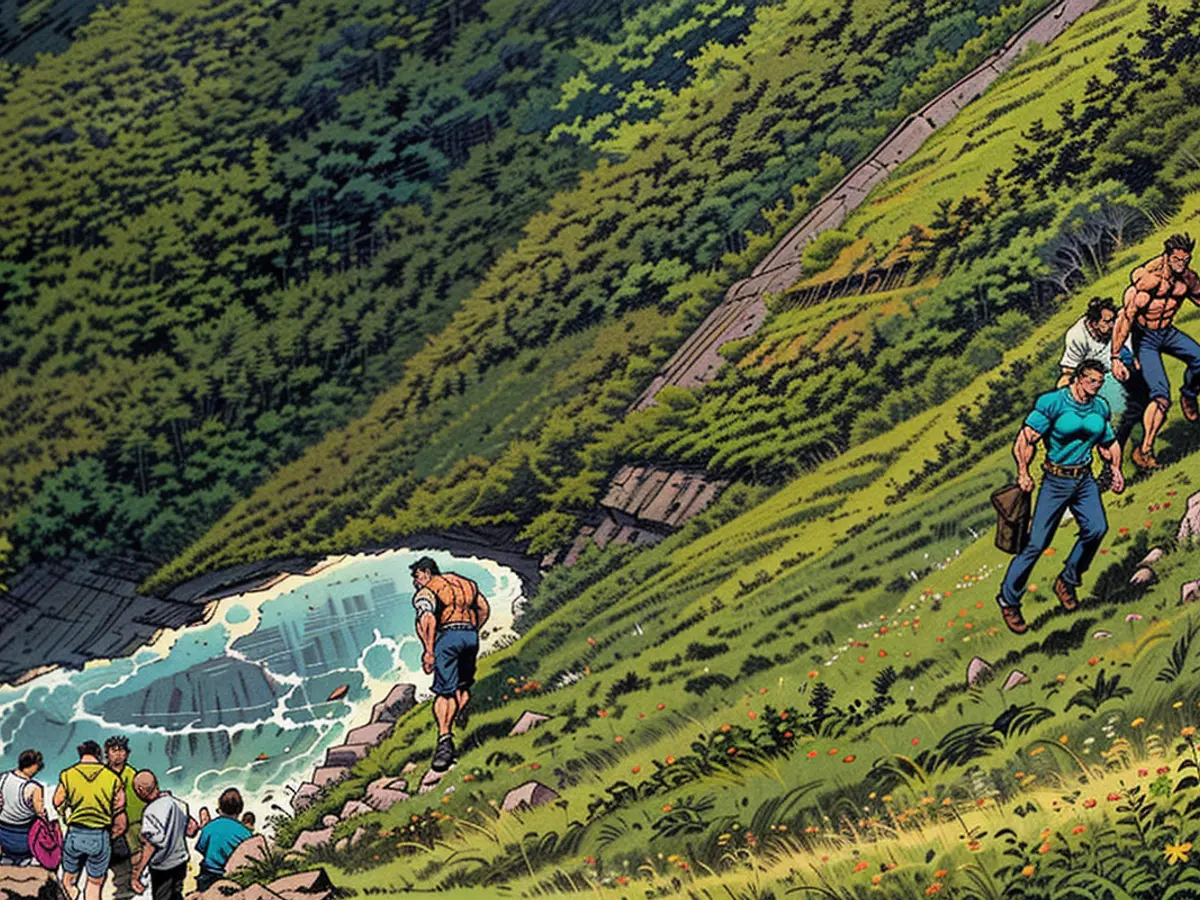Gino Mäder's demise has resulted in a heap of wreckage.
A year ago, professional cyclist Gino Maeder passed away due to a fall during the Tour de Suisse. The cycling community is deeply affected, as his family has been forever changed by this tragedy. With accidents and serious injuries occurring even among the elite, the risks involved in the sport are underscored.
For Sandra Maeder, everyday life is still a far-off dream. "Just thinking about it makes me overwhelmed," said the mother of cyclist Gino Maeder. Her son tragically died at the age of 26 during the Tour de Suisse. Next week, a memorial for him will be held for the first time.
The current edition of the race commemorates Gino. For the family, this brings an emotional roller coaster ride. "It will be nice to see how Gino's memory lives on in many hearts. But it will also be heartbreaking," Sandra Maeder told the newspaper "Blick." The day of the accident is never far from her mind. Although it may not always seem evident from the outside, "it's a giant mess inside." She has experienced panic attacks frequently.
Last year, on June 16th, Maeder crashed at the descent from the Albula Pass, landing in a ravine. Medical assistance was necessary on site, and in the hospital, doctors could not do much more. The day after the accident, he succumbed to his severe head injuries.
Continuous serious crashes
His number 44 will never be assigned again. The leader's jersey this year will bear the hashtag #rideforGino. Additionally, the highest point in the race has been dedicated to him. "The race is full of emotions, but actually, everything in our daily lives is full of emotions," said Laura Joerin, Gino's sister and a teacher. She has not been closely following cycling since her brother won an Etape at the Giro d'Italia. "We all experience the races differently now that Gino is no longer here. For me, the interest has increased significantly. My mom watches the races later, only after she knows everything is alright," said Joerin.
However, there have been many crashes, especially among the top riders recently. In March, Belgian Wout van Aert had a severe high-speed crash. In early April, shocking images from the Basque Country Tour circulated around the world, featuring the time trial world champion Remco Evenepoel and two-time Tour de France winner Jonas Vingegaard involved in a mass crash during a descent. Vingegaard suffered severe lung injuries and several bone fractures. His participation in this year's Tour is uncertain.
Riders face significant risk
The organizers of the races are constantly increasing safety measures. For example, acoustic and optical warning signals will be installed at dangerous turns for the Tour de France, which starts at the end of June. However, it also depends on the riders themselves. "The awareness after Gino Maeder's death has certainly increased, but the risk tolerance remains the same," said former professional cyclist and TV expert Fabian Wegmann. "I don't think it was a life-changing experience that has made riders ride more slowly," Wegmann, who is 43, added.
Crashes have always been an inherent part of cycling, according to Laura Jörin, the sister of the late Matthias Kessler. "The cyclists are so fast and so poorly protected. I think it's impossible to change anything since cycling thrives on the excitement." She notices a slight shift, though. "I know that some pros are riding differently since Gino's crash, possibly more cautiously," Jörin remarked. "But I believe it will return to normal when the memory of my brother's death becomes less significant."
Read also:
The cycling community continues to grapple with the significant number of deaths and serious injuries in the sport, following Gino Maeder's tragic demise at the Tour de Suisse last year. The risks associated with cycling are once again brought to the forefront, particularly after recent high-profile crashes, such as Wout van Aert's severe high-speed crash in March.
Despite the ongoing safety concerns, former professional cyclist Fabian Wegmann believes that the risk tolerance remains the same, despite the increased awareness following Gino Maeder's death.








